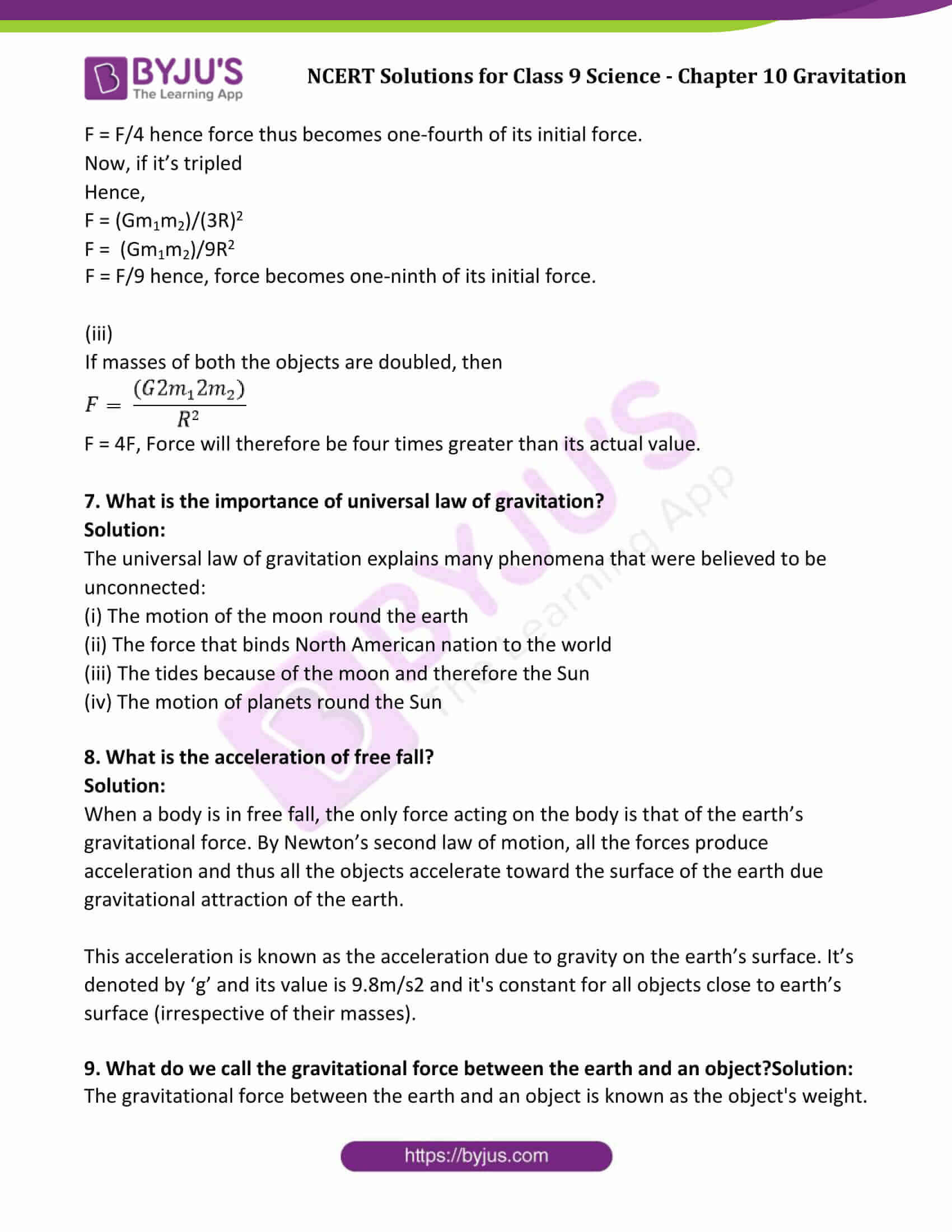
Ncert Solutions For Class 9 Science Chapter 6 Tissues In Hindi
Question 1. Friction is a (a) non-contact force (b) contact force (c) magnetic force (d) electrostatic force Answer Question 2. Which of the following produces least friction? (a) Sliding friction (b) Rolling friction (c) Composite friction (d) Static friction Answer Question 3. Friction always (a) opposes the motion (b) helps the motion

Extra Questions for Class 8 Science Chapter 12 Friction Gurukul of Excellence
In the pursuit of a comprehensive understanding of CBSE Class 8 Science Chapter 12 "Friction," practicing extra questions emerges as a valuable strategy. Students are suggested to go through each and every question for better concept coverage. Very Short Answer Type Questions Q.1 What is force of friction? Ans.

Hot Mcq Based Questions For Class 8 Science Chapter 12 Friction Apsg Maths Extra Vrogue
CBSE Class 8 Science NCERT Solutions Chapter-wise. Chapter 1 - Crop Production and Management. Chapter 2 - Microorganisms: Friend and Foe. Chapter 3 - Synthetic Fibres and Plastics. Chapter 4 - Materials: Metals and Non-metals. Chapter 5 - Coal and Petroleum. Chapter 6 - Combustion and Flame.
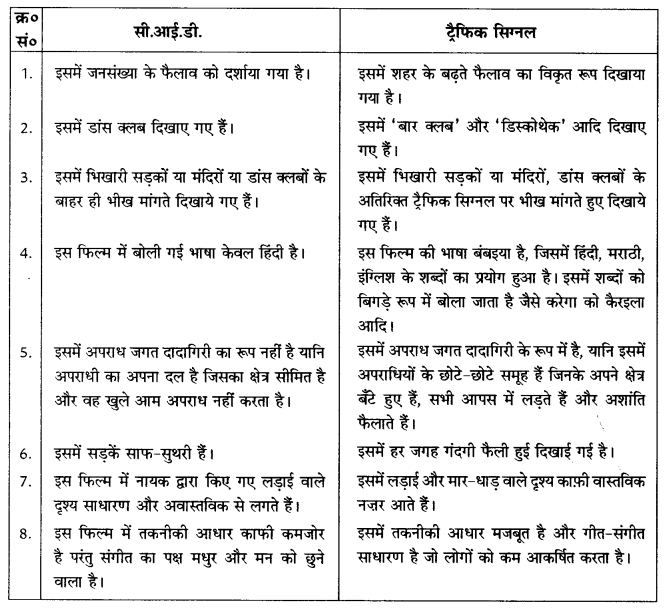
download 5 cbse class 4 hindi printable worksheets in pdf download cbse class 4 hindi
Chapter 12 - Friction Chapter 13 - Sound Chapter 14 - Chemical Effect of Electric Current Chapter 15 - Some Natural Phenomena Chapter 16 - Light Chapter 17 - Stars And Solar System Chapter 18 - Pollution of Air and water Importance of Extra Questions for 8 Science

Ncert Solutions For Class 10 Science Chapter 12 Electricity Cbse Path Photos
Question 1. What is the force of friction? Answer: The force acting on a moving object equal and opposite to the direction of motion is called force of friction. Question 2. What is the cause of friction? Answer: The irregularities on the two surfaces in contact is the cause of friction. Question 3.
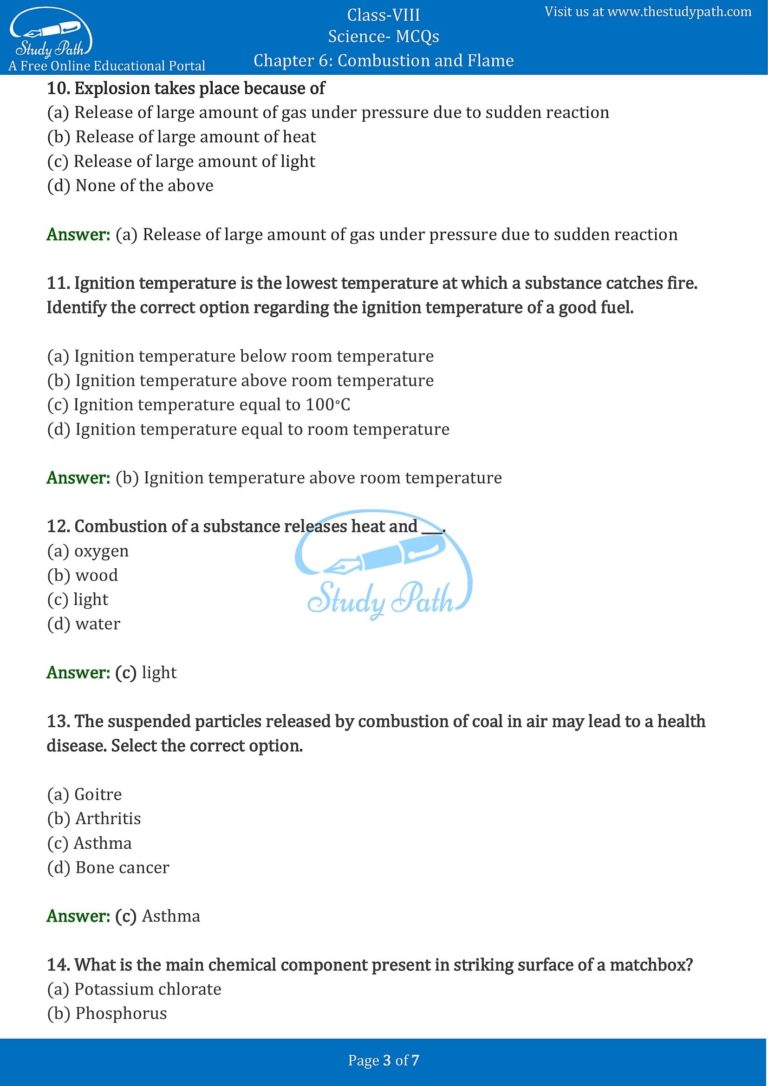
Mcq Questions For Class 8 Science Chapter 3 Synthetic Fibres And Riset
The NCERT Exemplar for Class 8 Science Chapter 12 covers questions such as Friction Class 8 MCQs, Friction quiz with answers, Friction Class 8 extra questions, Friction Class 8 worksheets, Friction Class 8 CBSE important questions, numerical problems and practice questions. Students must understand these concepts and work on them on a regular.
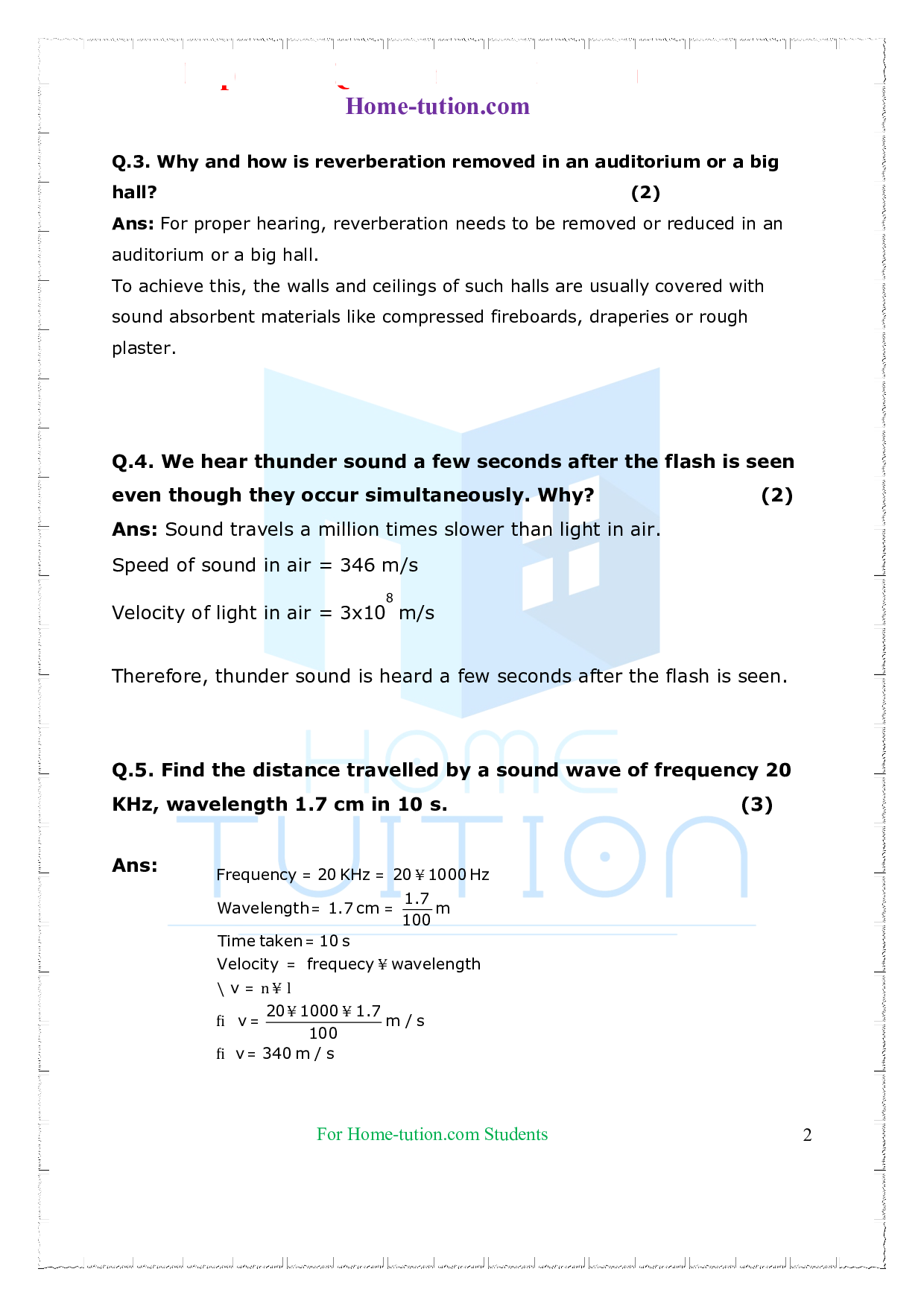
Important Questions For Class 9 Science Chapter 12 Sound With Solutions
Solution: (a) relative motion (b) smoothness (or irregularities or nature) (c) heat (d) reduces (e) less Question 2. Four children were asked to arrange forces due to rolling, static and sliding frictions in decreasing order. Their arrangements are given below. Choose the correct arrangement. (a) rolling, static, sliding

CBSE Class 8 Science Chapter 12 Friction Revision Notes
Friction Class 8 Extra Questions Short Answer Type 2. Question 1. Give any two methods each to increase and decrease friction. Answer: Methods to increase the friction: (a) By making the surfaces rough. (b) By removing the lubrication between the two surfaces. (c) By changing the rolling friction to sliding friction.
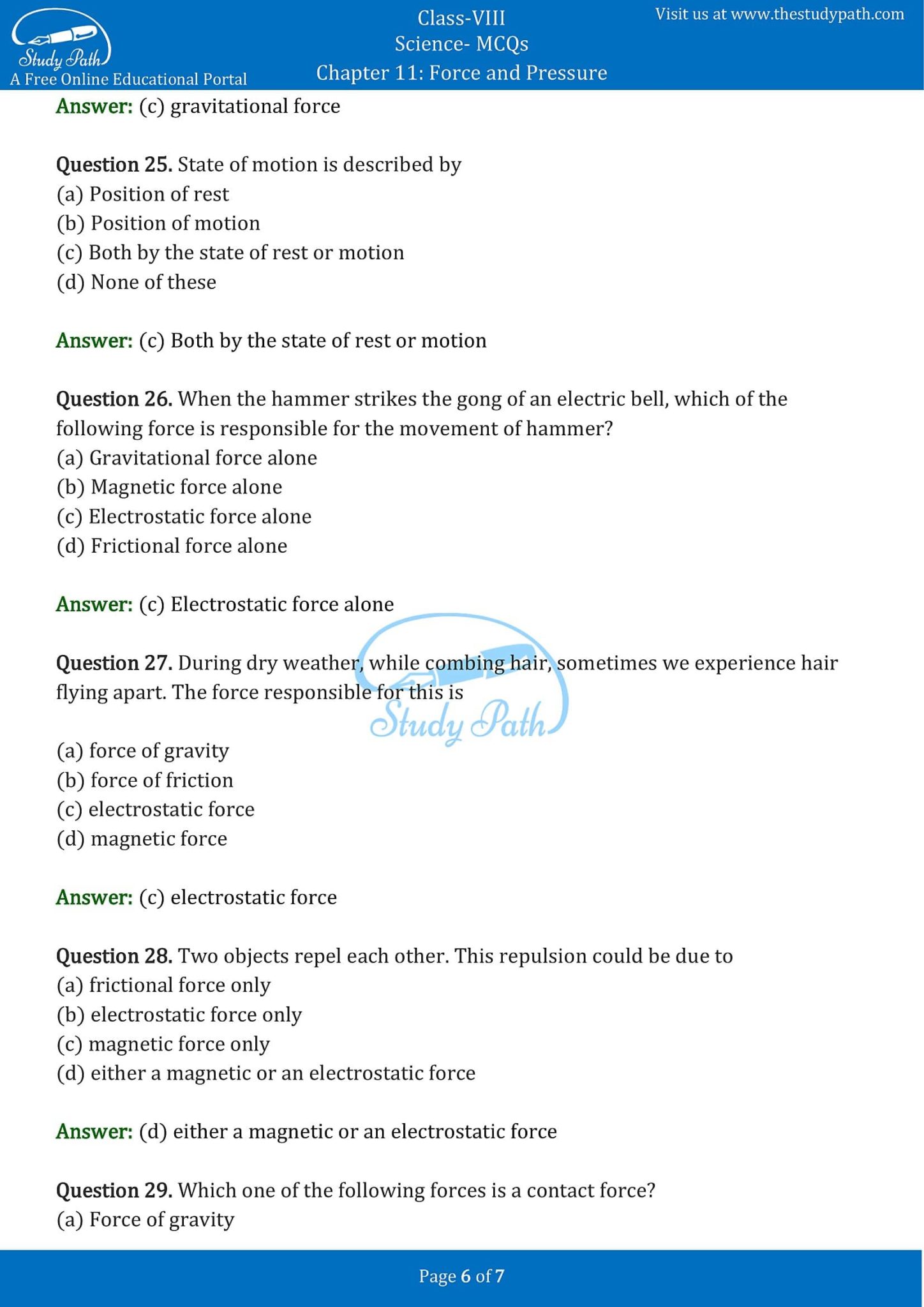
Class 8 Science Chapter 11 Force and Pressure MCQ with Answers
Exercise Questions 1. Fill in the blanks. (a) Friction opposes the _____________ between the surfaces in contact with each other. (b) Friction depends on the _____________ of surfaces. (c) Friction produces __________. (d) Sprinkling of powder on the carrom board ________ friction. (e) Sliding friction is ___________ than the static friction. Soln:
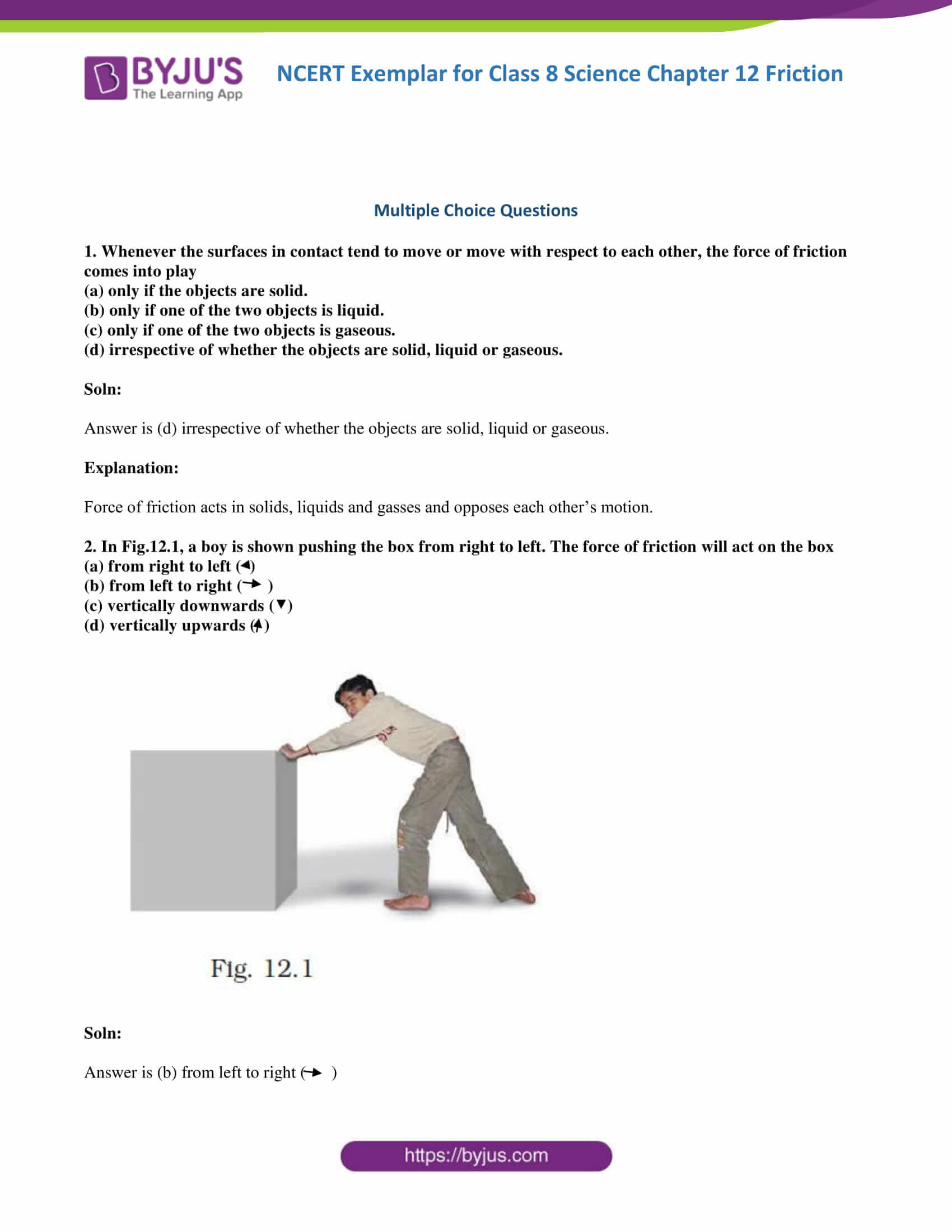
Science Gk In Hindi Class 8 GK in Hindi
Question 1. What is the force of friction? Answer: The force acting on a moving object equal and opposite to the direction of motion is called force of friction. Question 2. What is the cause of friction? Answer: The irregularities on the two surfaces in contact is the cause of friction. Question 3.
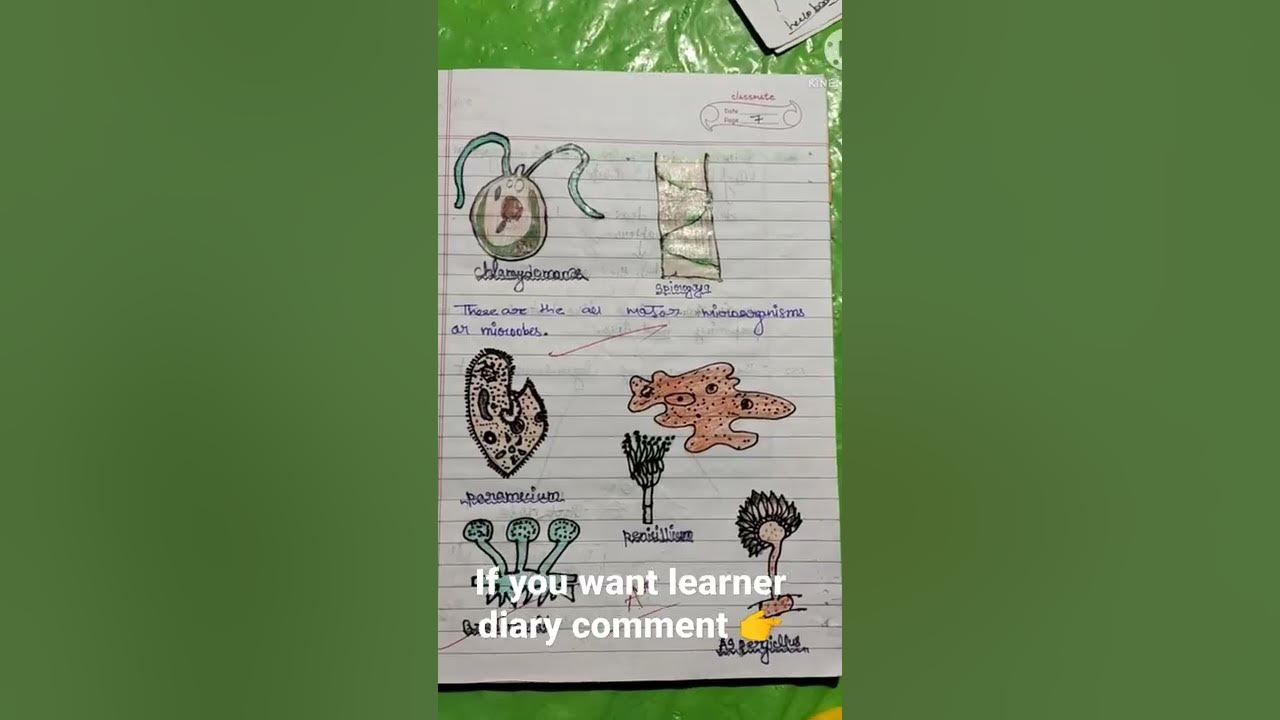
class 8 science chapter 2 question and answer ncert book. YouTube
(a) Magnetic force (b) Muscular force (c) Frictional force (d) Electrostatic force 3 . Force of friction is dependent on____ (a) roughness of surface (b) smoothness of surface (c) inclination of surface (d) all of these Important Questions For Class 8 Science Chapter 12 Friction are given here.
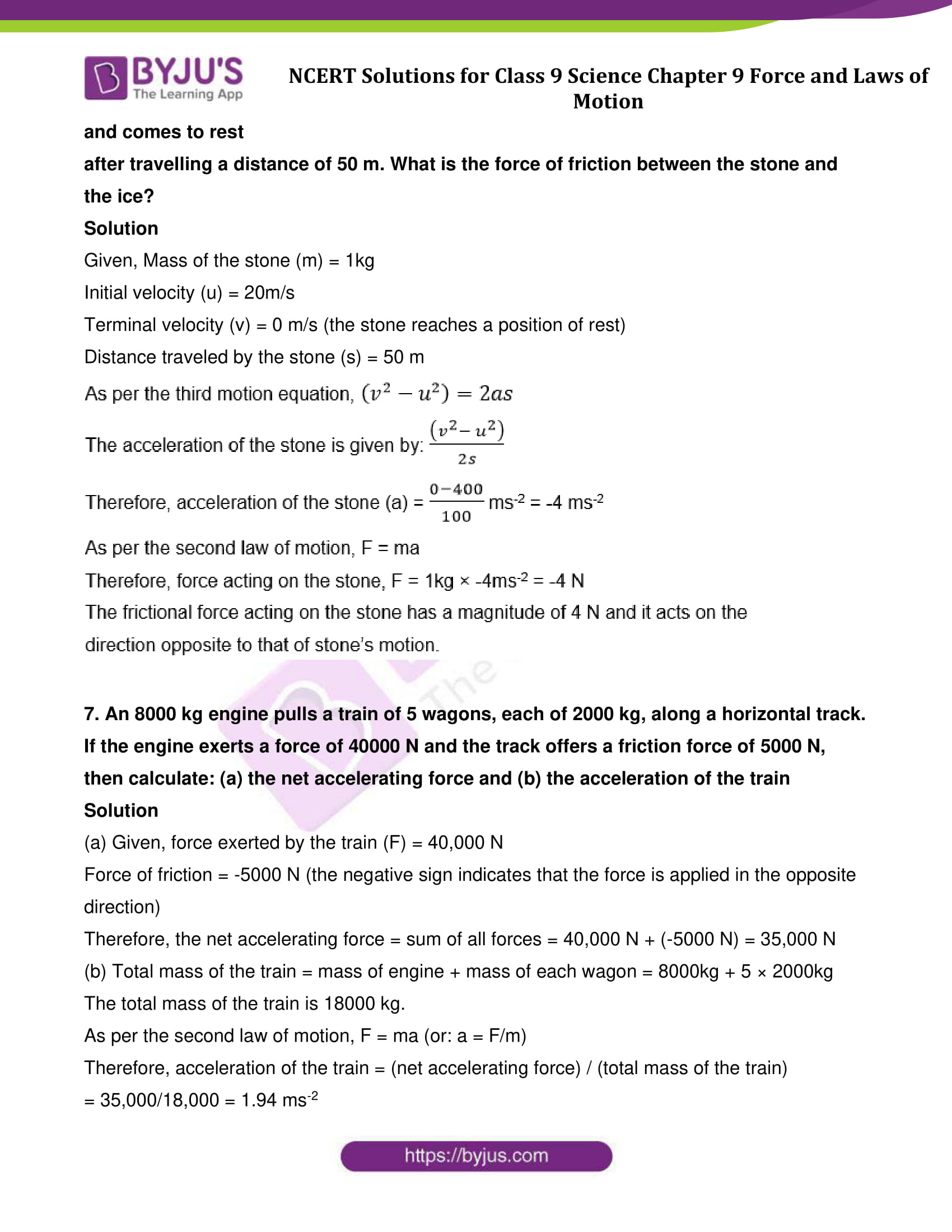
Important Questions For Class 9 Science Chapter 14 Natural Resources Rezfoods Resep Masakan
Chapter 12 Friction NCERT Solutions for Class 8 Science - Notes. • Friction is a force that opposes the relative motion between two surfaces of objects in contact. The force of friction always acts in a direction opposite to that of the applied force. • Friction is caused by the irregularities on the two surfaces in contact.
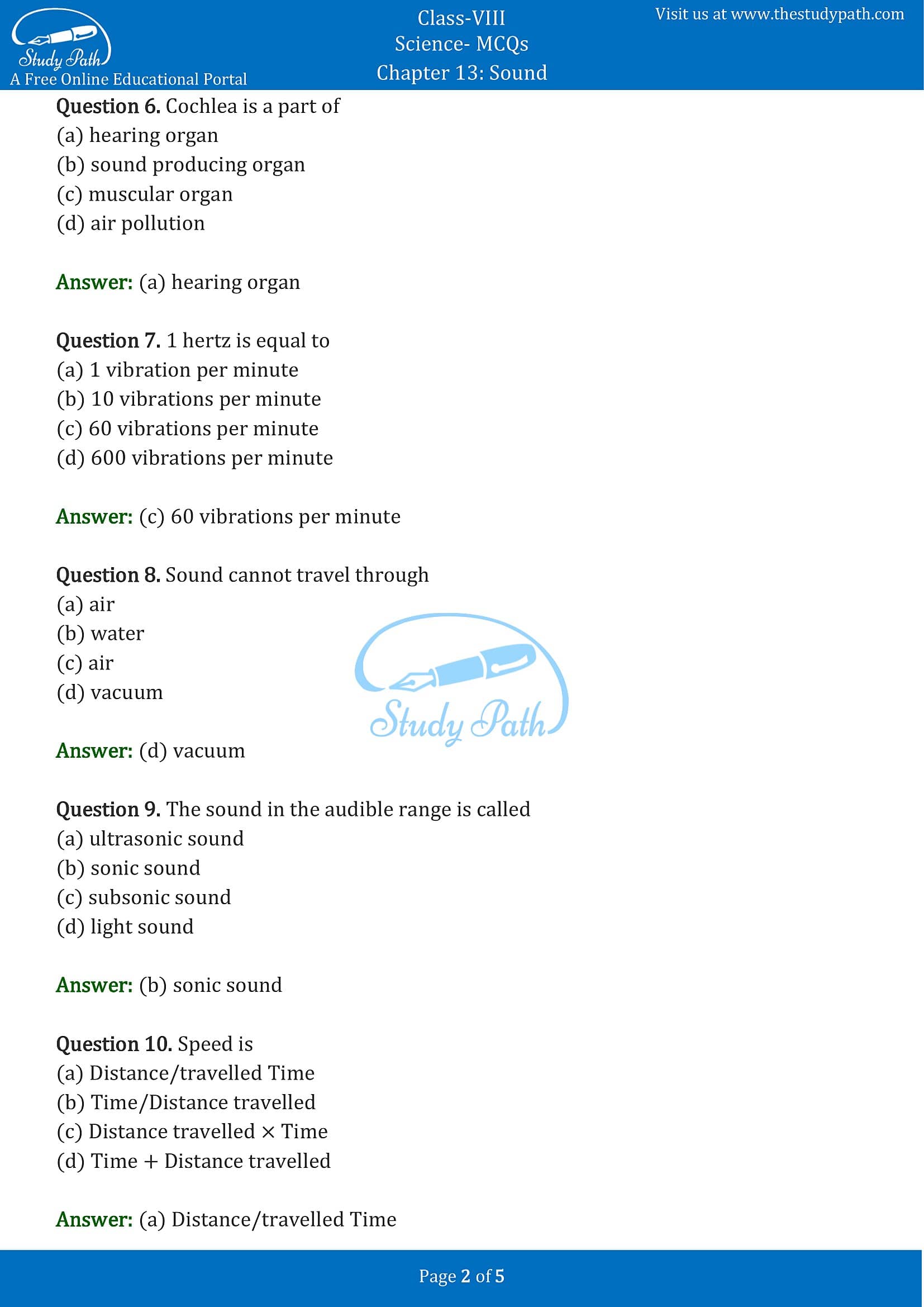
Class 8 Science Chapter 13 Sound MCQ with Answers Study Path
Class 8 Science Chapter 12 extra questions and important questions discuss the topic of friction and various factors affecting it. These questions are designed by subject experts at Vedantu as per the guidelines of CBSE.

class 8 science chapter 1 important questions 8th science chapter 1 important questions for
Class 8 Science Chapter 12 Extra Questions and Answers - Friction. Here in this Page Class VIII Students can Learn Extra Questions & Answer 12th Chapter Science fully Inside. We Provided Here Friction Science Chapter 12 Long Answer Type Question, Very Short Type Questions (VSA) / MCQ Type Questions, Short Type Questions (SA)..
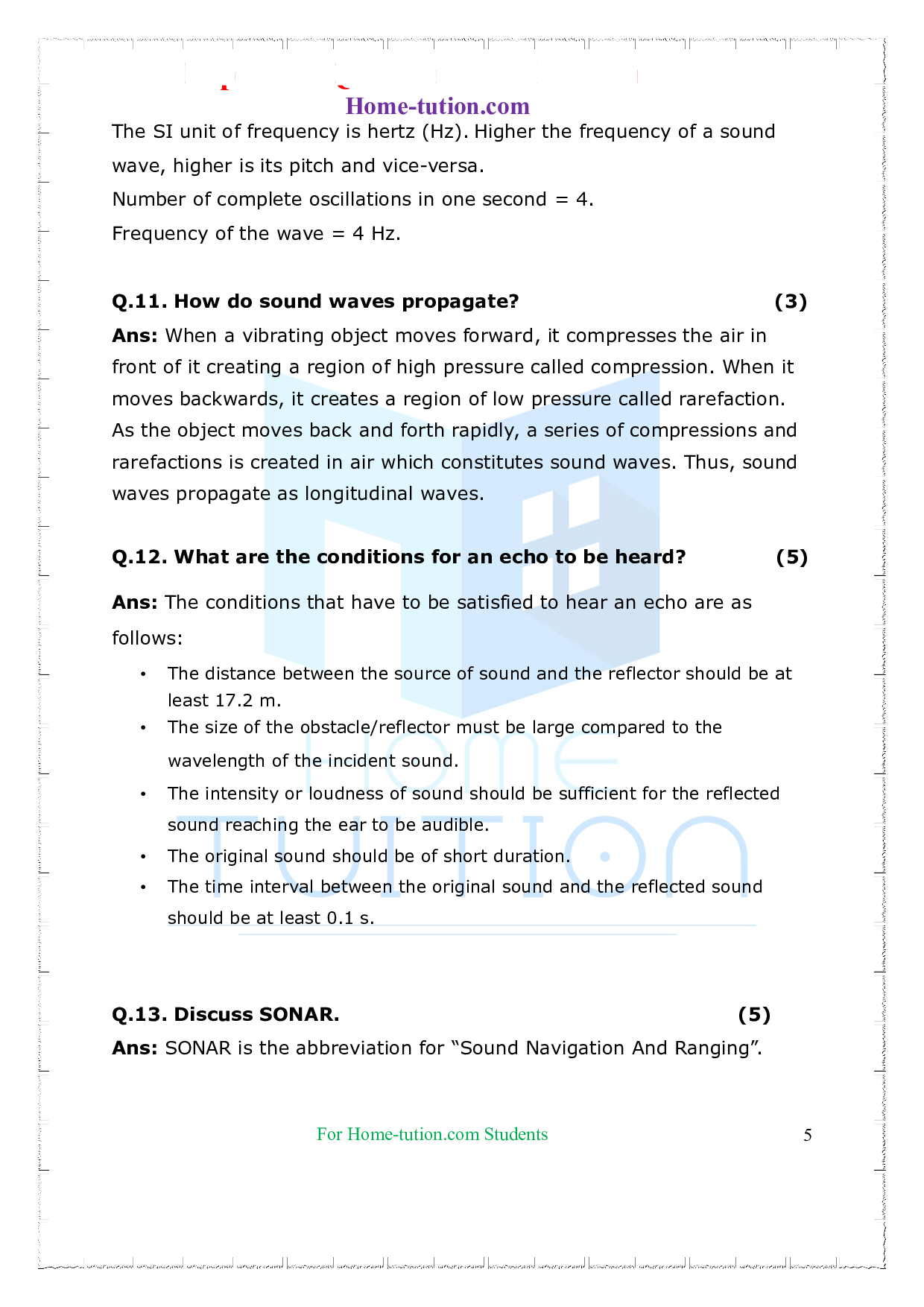
Important Questions For Class 9 Science Chapter 12 Sound With Solutions
Here is the list of Extra Questions for Class 8 Science with Answers based on latest NCERT syllabus prescribed by CBSE. Chapter 1 Crop Production and Management Class 8 Extra Questions Chapter 2 Microorganisms: Friend and Foe Class 8 Extra Questions Chapter 3 Synthetic Fibres and Plastics Class 8 Extra Questions
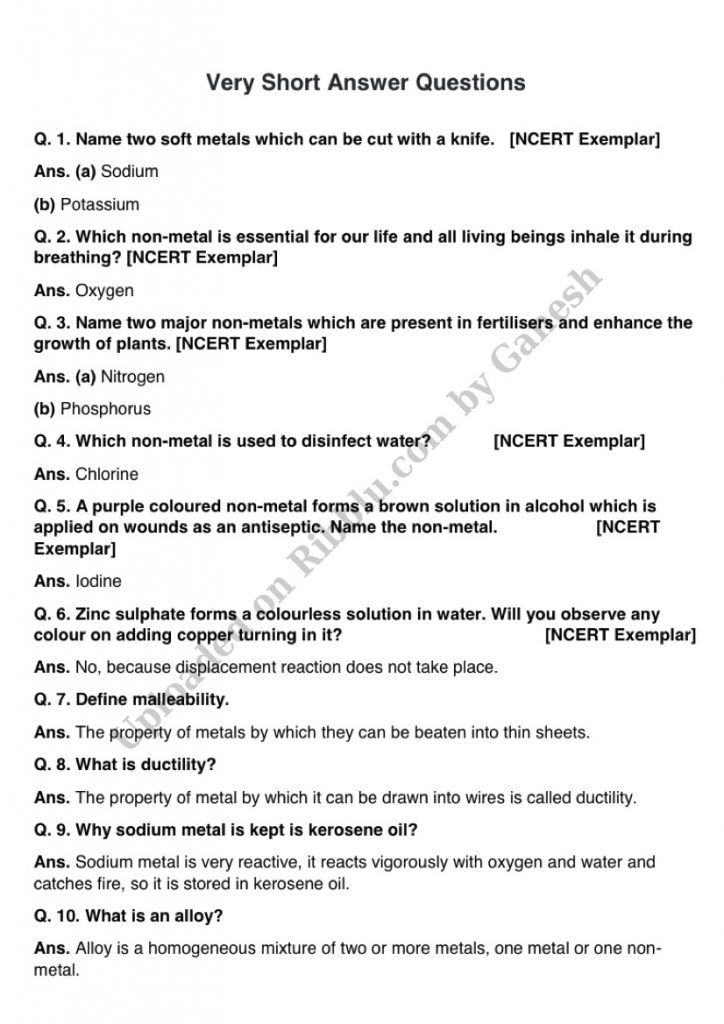
Top 108 + Reproduction in animals class 8 extra questions and answers
Answer. Question 6. Whenever the surfaces in contact tend to move or move with respect to each other, the force of friction comes into play. (a) only if the objects are solid. (b) only if one of the two objects is liquid. (c) only if one of the two objects is gaseous. (d) irrespective of whether the objects are solid, liquid or gaseous.